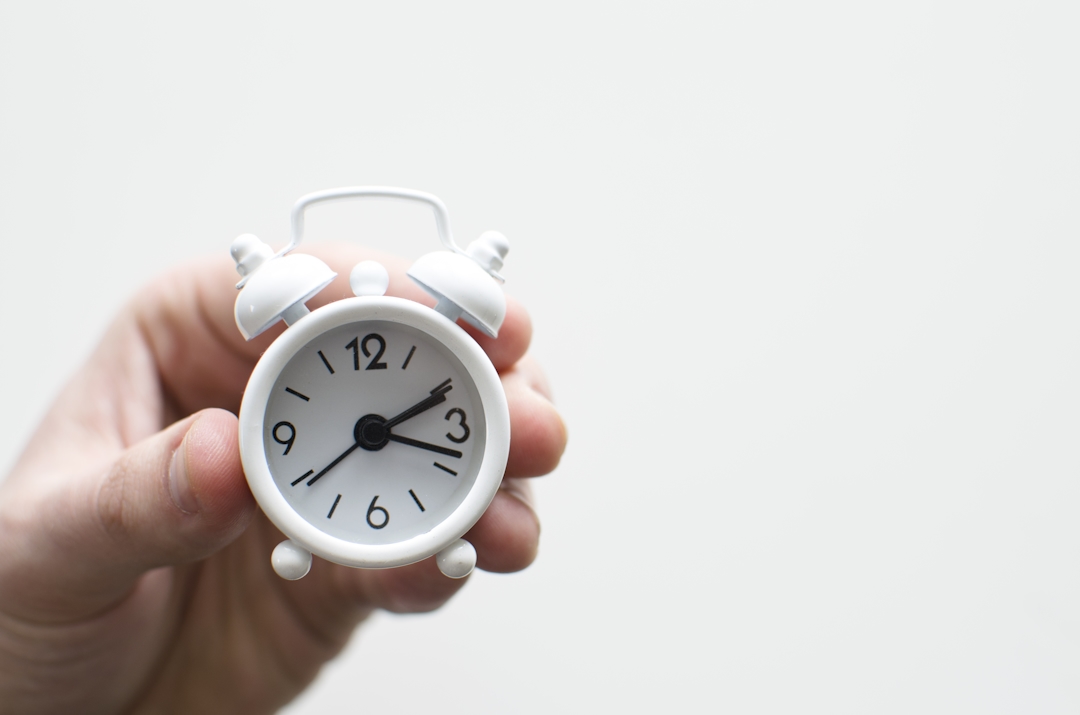
Stress-Free Living: Effective Techniques for Managing Daily Stress and Enhancing Well-being
Discover practical strategies to manage daily stress and boost your overall well-being for a healthier, happier life.

Audio Summary
Key Takeaways
- Stress management is essential for mental and physical health
- Exercise and physical activity release endorphins and improve cognitive function
- Effective time management reduces feelings of overwhelm
- Relaxation techniques like deep breathing and meditation reduce anxiety
- Incorporating these strategies into your routine leads to a balanced and fulfilling life
Introduction
In today's fast-paced world, stress has become a common part of daily life, affecting both mental and physical health. While a certain amount of stress can be motivating, too much can lead to burnout and health problems. This article explores practical stress management strategies to enhance overall well-being. By incorporating simple stress reduction techniques into your routine, you can achieve a healthier, happier life and maintain a balanced state of mind.

Boost Your Well-Being: How Exercise and Yoga Can Help Manage Daily Stress
Exercise and physical activity are powerful tools for managing daily stress and improving overall well-being. Engaging in regular exercise, such as a morning jog or a walk during lunch breaks, can significantly reduce stress levels. Physical activity triggers the release of endorphins, often referred to as 'feel-good' hormones, which can elevate mood and provide a sense of calm. Additionally, exercise improves cognitive function, helping you think more clearly and handle stress better.
Yoga is another excellent option for stress relief. This practice combines slow movement, stretching, and deep breathing, which can lower anxiety and stress levels. Studies show that yoga can improve emotional regulation and reduce symptoms of depression and anxiety. Taking a yoga class or even practicing a few poses at home can make a noticeable difference in how you manage stress.
Incorporating physical activity into your daily routine doesn't have to be time-consuming. Even short bursts of exercise can offer significant benefits. Consider taking the stairs instead of the elevator or opting for a bike ride instead of driving. These small changes can contribute to a healthier, stress-free lifestyle. Remember, the key is consistency; making exercise a regular part of your life can lead to long-term improvements in both mental and physical health.

Mastering Time Management: Prioritization Strategies for a Stress-Free Life
Effective time management and prioritization are essential for reducing daily stress and enhancing well-being. By creating to-do lists and setting clear goals, you can manage your time more efficiently. This approach helps you focus on the most important tasks first, significantly reducing feelings of overwhelm. Think of it as organizing a cluttered room; once things are in their proper place, you can move around more freely and focus better.
Another key strategy is to work smarter, not harder. This means identifying high-priority tasks and delegating or postponing less important ones. By doing so, you can concentrate your energy on what truly matters, rather than spreading yourself too thin. For instance, if you have a big project due, focus on completing the major components first before getting bogged down by minor details.
Learning to say no is also crucial. Taking on too many responsibilities can lead to burnout, so it's important to recognize your limits. Politely decline additional tasks that you know will overload your schedule. This isn't about shirking responsibilities but about maintaining a healthy balance.
Finally, consider using tools like planners, calendars, or time management apps to keep track of your tasks and deadlines. These tools can help you visualize your workload and allocate your time more effectively. By managing your time wisely, you can reduce stress and create more opportunities for relaxation and self-care, ultimately leading to a more balanced and fulfilling life.

Effective Relaxation Techniques: Simple Practices to Reduce Stress and Enhance Well-Being
Relaxation techniques are vital for managing stress and improving overall well-being. Deep breathing exercises, such as belly breathing and the 4-7-8 technique, can activate your body's natural relaxation response. These practices are simple yet effective ways to calm your mind and reduce anxiety. Imagine your breath as a wave; as you inhale deeply, the wave rises, and as you exhale slowly, the wave gently washes away stress.
Meditation is another powerful tool for stress relief. By taking just a few minutes each day to sit quietly and focus on your breath or a calming image, you can lower stress and anxiety, and even improve your mood and sleep quality. Regular meditation practice can lead to long-term mental health benefits, helping you navigate daily challenges with a clearer, more focused mind.
Progressive muscle relaxation involves tensing and then slowly releasing different muscle groups in your body. This technique not only reduces physical tension but also promotes a sense of overall relaxation. Picture yourself squeezing a sponge; as you release the squeeze, the tension flows out, leaving the sponge soft and relaxed.
Incorporating these relaxation techniques into your daily routine can make a significant difference in how you handle stress. Whether it's through a few minutes of deep breathing, a short meditation session, or practicing muscle relaxation, these methods can help you maintain a calmer, more balanced state of mind.

Conclusion
In summary, managing daily stress is essential for maintaining a healthy and happy life. Incorporating regular exercise and physical activity releases endorphins and improves cognitive function, while yoga can lower anxiety and enhance emotional well-being. Effective time management and prioritization help reduce overwhelm by focusing on high-priority tasks and delegating less critical ones. Finally, relaxation techniques such as deep breathing, meditation, and progressive muscle relaxation activate the body's natural calming mechanisms, reducing both physical and mental stress. By integrating these stress management strategies into your daily routine, you can enhance your overall well-being, leading to a more balanced and fulfilling life.
References
- '10 stress busters' by NHS, NHS Mental Health, https://www.nhs.uk/mental-health/self-help/guides-tools-and-activities/tips-to-reduce-stress/
- 'Control Fallacies: Delving Deeper into Cognitive Distortions' by Therapy Now, Therapy Now SF, https://www.therapynowsf.com/blog/control-fallacies-delving-deeper-into-cognitive-distortions
- 'Stress potentiates decision biases: A stress induced deliberation-to-intuition model' by Y. L. Ng et al., Frontiers in Human Neuroscience, https://www.ncbi.nlm.nih.gov/pmc/articles/PMC5146206/
- 'What Is... a Logical Fallacy' by Mental Health @ Home, Mental Health @ Home, https://mentalhealthathome.org/2022/02/10/what-is-logical-fallacy/
- 'How To Effectively Address Logical Fallacies At Work' by Oak Innovation, Oak Innovation, https://www.oakinnovation.com/blog/free-training-guides/how-to-spot-logical-fallacies-at-work
- 'Exercise and Mental Health' by Harvard Health Publishing, Harvard Health Publishing, https://www.health.harvard.edu/staying-healthy/exercise-and-mental-health
- 'Yoga for Anxiety and Depression' by Harvard Health Publishing, Harvard Health Publishing, https://www.health.harvard.edu/staying-healthy/yoga-for-anxiety-and-depression
- 'Time Management Tips' by Mayo Clinic, Mayo Clinic, https://www.mayoclinic.org/healthy-lifestyle/adult-health/in-depth/time-management/art-20048282
- 'Prioritizing Tasks' by MindTools, MindTools, https://www.mindtools.com/a2e0n5x/prioritizing-tasks
- 'Deep Breathing Exercises' by American Lung Association, American Lung Association, https://www.lung.org/our-initiatives/healthy-air/indoor/indoor-air-pollutants/breathing-exercises.html
- 'Meditation and Mindfulness' by Mayo Clinic, Mayo Clinic, https://www.mayoclinic.org/healthy-lifestyle/stress-management/in-depth/meditation/art-20045858
- 'Progressive Muscle Relaxation' by Mayo Clinic, Mayo Clinic, https://www.mayoclinic.org/healthy-lifestyle/stress-management/expert-answers/progressive-muscle-relaxation/faq-20057979
- 'Social Support and Stress' by Psychology Today, Psychology Today, https://www.psychologytoday.com/us/blog/the-power-prime/201503/social-support-and-stress
- 'The Importance of Social Connections' by Harvard Health Publishing, Harvard Health Publishing, https://www.health.harvard.edu/staying-healthy/the-importance-of-social-connections
- 'Healthy Eating and Stress' by Academy of Nutrition and Dietetics, Academy of Nutrition and Dietetics, https://www.eatright.org/health/wellness/healthy-eating/stress-and-emotional-eating
- 'Gratitude and Well-being' by Greater Good Science Center, Greater Good Science Center, https://greatergood.berkeley.edu/podcasts/gratitude
- 'Mindfulness and Stress Reduction' by Mindful.org, Mindful.org, https://www.mindful.org/mindfulness-and-stress-reduction/
- 'Avoiding Unhealthy Habits' by American Psychological Association, American Psychological Association, https://www.apa.org/topics/stress/healthy-habits
- 'Self-Care and Stress' by Mental Health America, Mental Health America, https://www.mhanational.org/taking-good-care-yourself
- 'Sleep and Stress' by National Sleep Foundation, National Sleep Foundation, https://www.sleepfoundation.org/stress-sleep
- 'Cognitive Behavioral Therapy' by Mayo Clinic, Mayo Clinic, https://www.mayoclinic.org/tests-procedures/cognitive-behavioral-therapy/about/pac-20384807
- 'Social Media and Mental Health' by Royal Society for Public Health, Royal Society for Public Health, https://www.rsph.org.uk/uploads/assets/uploaded/7f19f4da-6d6f-40c0-a17c5d5a7d6c.pdf

Related Blog Content

Effective Stress Management Techniques for Busy Professionals
Discover practical stress management techniques designed specifically to help busy professionals maintain balance and well-being.
Read More
The Science Behind Mindfulness and How It Enhances Brain Function and Well-Being
Discover how mindfulness practices can improve brain function, reduce stress, and enhance overall well-being through scientific insights.
Read More
Digital Detox: Reclaim Your Mental Space in a Hyper-Connected World
Discover practical strategies to unplug, reduce digital overwhelm, and restore balance in your life for improved mental well-being.
Read MoreReady to optimize your biology?
Nutritionaly is free to start. Build better habits, unlock insights, and watch your Bio-Score rise.